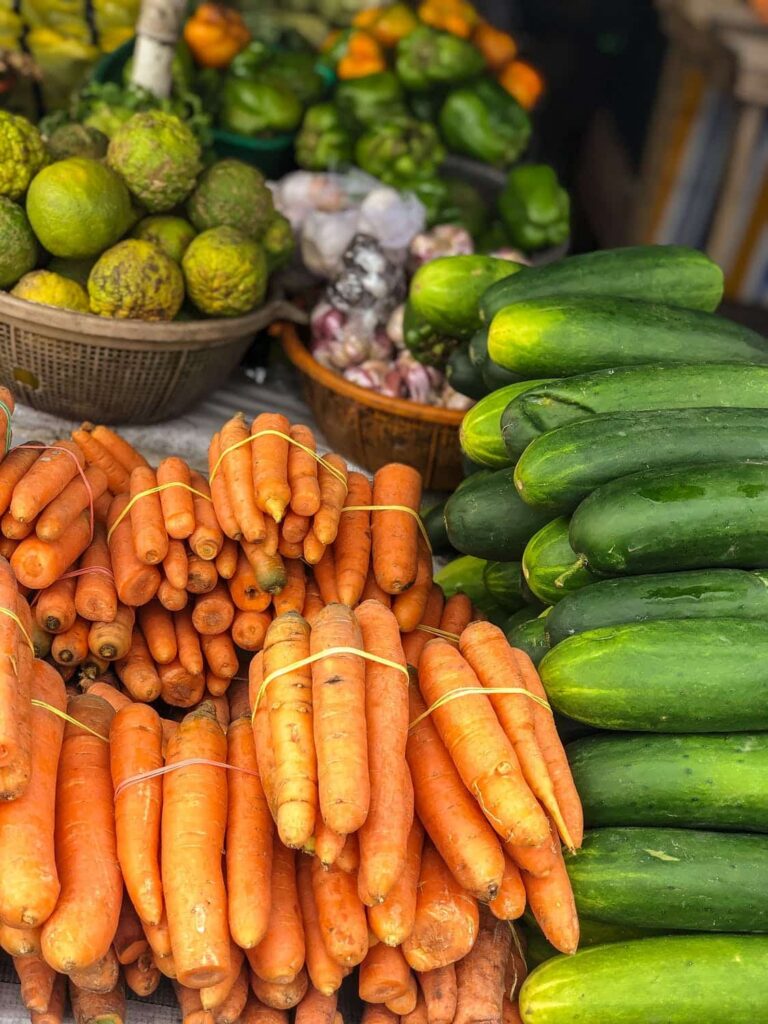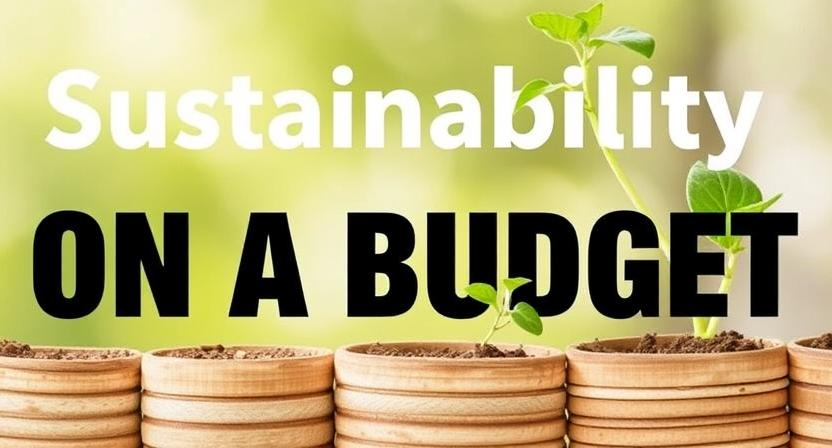Tips for Hosting Environmentally-Friendly BBQs
When it comes to hosting environmentally-friendly BBQs, making conscious choices can significantly reduce your carbon footprint. Opting for sustainable ingredients, such as organic meats and locally-sourced produce, can support eco-friendly practices while showcasing the flavors of seasonal offerings. Additionally, incorporating plant-based options into your BBQ menu can cater to a variety of dietary preferences while promoting sustainable food choices.
Setting up recycling bins and compost stations at your BBQ can encourage guests to dispose of waste properly and participate in reducing environmental impact. Choosing eco-friendly utensils and plates made from renewable materials can also minimize the use of single-use plastics and reduce overall waste generated during the event. By implementing these simple tips, you can create a more sustainable BBQ experience for both your guests and the planet.
Choosing Sustainable Ingredients for Your BBQ
Host your next BBQ with sustainable ingredients to minimize environmental impact and support ethical food practices. Look for locally sourced meats and produce to reduce carbon emissions from transportation and to support nearby farmers. When selecting meats, opt for organic or grass-fed options to promote animal welfare and reduce the use of harmful chemicals in farming practices.
For a more eco-friendly BBQ, consider incorporating plant-based options like veggie burgers or grilled vegetables. Not only are vegetarian dishes more sustainable in terms of water and land usage, but they also offer a lighter environmental footprint compared to traditional meat dishes. By prioritizing sustainable ingredients, you can make a positive impact on the environment while still enjoying a delicious BBQ spread.
Opting for Local and Organic Meats and Produce
When it comes to hosting an environmentally-friendly BBQ, opting for local and organic meats and produce is a key consideration. Choosing local options not only supports nearby farmers and reduces the carbon footprint associated with transportation but also ensures fresher and more flavorful ingredients for your BBQ menu. By selecting organic meats and produce, you can minimize exposure to harmful chemicals and pesticides, while also promoting sustainable farming practices that prioritize soil health and biodiversity.
Local and organic options also tend to have a lower environmental impact compared to conventionally produced items, making them a more eco-conscious choice for your BBQ gathering. Additionally, sourcing ingredients from nearby farms and markets can help foster a sense of community and connection to the food you serve, enriching the overall experience for both you and your guests. By prioritizing local and organic meats and produce, you can align your BBQ with principles of sustainability and support the growing movement towards a more environmentally-friendly food system.
Reducing Food Waste at Your BBQ
When it comes to hosting a BBQ, one of the key factors to consider is how to minimize food waste. A simple way to reduce food waste at your BBQ is to plan your menu carefully and only purchase or prepare the amount of food that you know will be consumed. Consider creating a shopping list based on the number of guests attending to avoid overbuying and wasting excess food.
Another effective way to reduce food waste at your BBQ is to encourage your guests to take home any leftovers they may have. Providing reusable containers or encouraging guests to bring their own containers can help minimize the amount of food that is thrown away at the end of the event. By promoting a mindset of sustainability and conscious consumption, you can make a positive impact on reducing food waste at your BBQ.
Eco-Friendly Utensils and Plates for Your BBQ
When hosting a BBQ, consider using eco-friendly utensils and plates to reduce your environmental impact. Opt for compostable or biodegradable options made from materials like bamboo, palm leaf, or sugarcane instead of traditional plastic or Styrofoam products. Not only are these eco-friendly alternatives better for the environment, but they also add a touch of natural, rustic charm to your BBQ setup.
Eco-Friendly Drink Options for Your BBQ
When planning your eco-friendly BBQ, don’t forget about sustainable drink options to complement your meal. Instead of purchasing single-use plastic bottles of water or soda, opt for bulk beverages that can be served in reusable pitchers or dispensers. Refreshing choices like homemade lemonade, iced tea, or infused water can be made in large quantities and reduce the need for individual packaging.
In addition to choosing environmentally conscious drinks, consider supporting local breweries or wineries for your BBQ. Look for beverages that are brewed or produced nearby to reduce the carbon footprint associated with transportation. By serving locally sourced beer, wine, or cider, you can showcase the flavors of your region while minimizing the environmental impact of your event.
Using Charcoal Responsibly for Grilling
Grilling with charcoal can add delicious flavors to your BBQ dishes, but it’s important to be mindful of the environmental impact. Opt for sustainably-sourced charcoal made from renewable resources like wood from managed forests or coconut shells. Avoid charcoal products containing additives or chemicals that can release harmful substances into the air when burned. Additionally, be sure to use just the right amount of charcoal needed for your grilling session to reduce waste and emissions.
When grilling with charcoal, consider using a chimney starter to light your charcoal instead of lighter fluid, which can release volatile organic compounds into the air and contribute to air pollution. This method is not only more eco-friendly but also safer for your health and the environment. Remember to properly extinguish and dispose of your charcoal after use to prevent fires and protect wildlife and natural habitats. By making small changes in how you use charcoal for grilling, you can enjoy your BBQ while minimizing your carbon footprint.
Minimizing Plastic Use at Your BBQ
When planning your BBQ, opt for reusable plates, cups, and utensils instead of disposable plastic ones. Invest in sturdy, eco-friendly options like bamboo plates, stainless steel utensils, and glass cups that can be washed and reused for future gatherings. Not only will this reduce the amount of plastic waste generated by your BBQ, but it will also add a touch of style and elegance to your outdoor event.
Utilizing Renewable Energy for Cooking at Your BBQ
When hosting a barbecue, consider utilizing renewable energy sources for cooking to reduce your carbon footprint. Solar-powered grills and stoves are becoming increasingly popular options for eco-conscious cooks. By harnessing the power of the sun, you can grill up delicious meals while minimizing your reliance on traditional fossil fuels.
Another renewable energy option for cooking at your BBQ is utilizing biomass stoves. These stoves use organic materials such as wood pellets, corn cobs, or even dried dung as fuel. Not only are biomass stoves environmentally friendly, but they also add a unique smoky flavor to your grilled dishes. Making the switch to renewable energy sources for cooking at your BBQ is a small step that can have a big impact on reducing greenhouse gas emissions and promoting sustainable practices.
Creating a Compost Station at Your BBQ
When hosting a BBQ, consider setting up a compost station to help minimize food waste. Composting organic materials like fruit peels, vegetable scraps, and napkins can divert them from ending up in landfills. Providing clear bins labeled for composting can encourage guests to separate their waste responsibly and contribute to sustainable practices.
By creating a compost station at your BBQ, you can showcase the importance of reducing environmental impact and promote eco-friendly habits among your guests. Educating them on what can be composted and providing guidance on proper disposal can help make the process seamless and effective. Additionally, utilizing the compost created from your BBQ event can contribute to enriching soil quality and promoting a more circular approach to waste management.
Encouraging Carpooling or Public Transportation to Your BBQ
Encouraging carpooling or public transportation to your BBQ can significantly reduce the environmental impact of your event. By coordinating with your guests to share rides or take public transit, you can help lower carbon emissions and minimize the number of vehicles on the road. Encouraging sustainable transportation options also promotes a sense of community and camaraderie among attendees, making the event more enjoyable for everyone while supporting eco-friendly practices.
Making transportation arrangements a part of the BBQ planning process can make it easier for guests to opt for carpooling or public transit. Providing information on available public transportation routes, carpooling opportunities, and designated meeting points can incentivize guests to choose more sustainable travel options. Additionally, highlighting the benefits of carpooling or using public transport, such as reducing fuel costs and parking hassles, can further motivate attendees to participate in environmentally-friendly transportation practices.
Setting up Recycling Bins at Your BBQ
Encouraging recycling at your BBQ is a simple yet effective way to reduce waste and minimize your environmental impact. By setting up clearly labeled recycling bins throughout your outdoor gathering, you can make it easy for guests to dispose of their recyclables properly. This small step can go a long way in diverting plastic bottles, aluminum cans, and other recyclable materials from ending up in landfills.
Having separate bins for recycling and trash not only promotes eco-friendly practices but also makes it convenient for guests to make sustainable choices. Prioritize placing the recycling bins in high-traffic areas where they are easily accessible and visible to everyone attending your BBQ. Remember to empty and sort the recycling bins regularly to ensure that waste is disposed of correctly and efficiently.
Decorating with Sustainable and Biodegradable Materials
When it comes to decorating for your BBQ, consider using sustainable and biodegradable materials to reduce your environmental impact. Opt for decorations made from natural materials such as wood, bamboo, or paper instead of plastic or synthetic materials. You can also get creative by using items like cloth napkins, burlap table runners, or natural fiber twine for a rustic and eco-friendly touch to your BBQ setup.
Incorporate living decorations such as potted plants or fresh flowers to add a lively and green element to your BBQ decor. These living decorations not only look beautiful but also help purify the air and create a fresh and inviting ambiance for your guests. By choosing sustainable and biodegradable materials for your BBQ decorations, you can showcase your commitment to environmental conservation while creating a stylish and eco-conscious atmosphere for your gathering.
Providing Vegetarian and Vegan Options at Your BBQ
When it comes to hosting a BBQ, catering to guests with different dietary preferences is essential. Providing delicious vegetarian and vegan options can ensure that everyone at your gathering feels included and well-fed. Grilled vegetables, veggie skewers, plant-based burgers, and tofu or tempeh options are all tasty choices for those adhering to vegetarian or vegan diets. Be sure to season and marinate these options well to enhance their flavors and appeal to a wide range of tastes.
Incorporating vegetarian and vegan options into your BBQ menu not only accommodates your guests but also showcases the versatility and variety of plant-based eating. By offering these alternatives alongside traditional meat dishes, you can introduce your guests to new flavors and ingredients while promoting sustainability and health-conscious choices. Experiment with different recipes and ingredients to create a balanced and satisfying meal that caters to all dietary preferences at your BBQ event.
– Grilled vegetables are a colorful and flavorful option for vegetarians
– Veggie skewers can be customized with a variety of veggies and seasonings
– Plant-based burgers offer a hearty alternative to traditional beef patties
– Tofu or tempeh can be marinated and grilled for a protein-packed dish
– Introducing vegetarian and vegan options promotes sustainability and health-conscious choices
– Experimenting with recipes can create a balanced meal that caters to all dietary preferences
Sourcing Sustainable Seafood for Your BBQ
When it comes to sourcing sustainable seafood for your BBQ, it is essential to make informed choices that support the health of our oceans and marine life. Opt for seafood that is certified by reputable organizations such as the Marine Stewardship Council or Seafood Watch, as they ensure that the fish is caught or farmed in an environmentally responsible manner.
Look for locally sourced seafood that is in season, as this not only reduces the carbon footprint of transportation but also supports local fishers and their communities. By choosing sustainable seafood options for your BBQ, you are not only contributing to the preservation of our oceans but also setting a positive example for your guests on how to make environmentally conscious choices when it comes to food consumption.
Avoiding Single-Use Condiment Packets at Your BBQ
When planning your BBQ, opt for bulk condiments instead of single-use packets. You can purchase condiments like ketchup, mustard, and mayonnaise in larger containers and serve them in reusable dishes or squeeze bottles. This not only reduces waste but also allows your guests to use as much or as little condiment as they prefer without unnecessary packaging.
Another eco-friendly alternative to single-use condiment packets is to offer homemade or locally-made condiments. By making your own sauces or purchasing them from local vendors, you can support small businesses and reduce the carbon footprint associated with mass-produced condiments that are often packaged in single-use plastic. Plus, homemade or locally-made condiments can add a personalized touch to your BBQ, impressing your guests with unique flavors and sustainable choices.
Using Natural Bug Repellents at Your BBQ
When hosting a BBQ outdoors, pesky bugs can often be a nuisance for both hosts and guests. To keep these unwelcome visitors at bay without harming the environment, consider using natural bug repellents. Simple solutions like citronella candles, essential oils like lemon eucalyptus or lavender, and even planting insect-repelling herbs like mint, basil, and rosemary around the BBQ area can help deter insects naturally without the need for harmful chemicals.
By incorporating natural bug repellents into your BBQ setup, you can create a more pleasant environment for everyone to enjoy without exposing them to potentially harmful substances. Not only are these natural solutions effective in repelling bugs, but they also contribute to a healthier and more eco-friendly BBQ experience overall. Remember to place the repellents strategically around the BBQ area to create a bug-free zone for your guests to relax and savor the outdoor dining experience.
Hosting Zero-Waste BBQs
When hosting a zero-waste BBQ, it’s essential to plan ahead and consider all aspects of the event. Opt for reusable plates, cups, and utensils instead of disposable items. Encourage guests to bring their own reusable containers for leftovers, and set up clearly labeled bins for compost, recycling, and trash.
Choose sustainable ingredients that are locally sourced and in season to minimize waste and support local farmers. Reduce food waste by planning portion sizes carefully and offering vegetarian and vegan options to cater to all dietary preferences. By being mindful of your choices and educating your guests on the importance of zero-waste practices, you can create an environmentally-friendly BBQ that leaves a positive impact on the planet.
Educating Your Guests on Eco-Friendly BBQ Practices
When hosting a BBQ, it’s important to educate your guests on eco-friendly practices to ensure a sustainable event. Start by explaining the importance of choosing sustainable ingredients and opting for local and organic meats and produce. By supporting local farmers and food producers, you are not only reducing the carbon footprint but also promoting the local economy.
Encourage your guests to minimize food waste by serving appropriate portion sizes and utilizing leftovers creatively. Setting up a compost station at your BBQ can help divert food scraps from the landfill and turn them into nutrient-rich soil. By educating your guests on these eco-friendly practices, you can make a positive impact on the environment while enjoying a delicious BBQ.
Supporting Local Farmers and Food Producers at Your BBQ
When hosting a BBQ, consider sourcing your ingredients from local farmers and food producers. By purchasing locally grown meat, produce, and other items for your event, you are supporting the community and reducing the carbon footprint associated with transporting goods over long distances. Local ingredients are often fresher and more flavorful, adding a special touch to your BBQ.
Connecting with local farmers and food producers not only benefits the environment but also helps to promote sustainable agricultural practices. By choosing to support those who prioritize organic and environmentally-friendly farming methods, you are contributing to the preservation of land, water, and wildlife habitats. Additionally, by building relationships with local suppliers, you can ensure the quality and authenticity of the ingredients used in your BBQ, creating a memorable and ethical dining experience for your guests.




